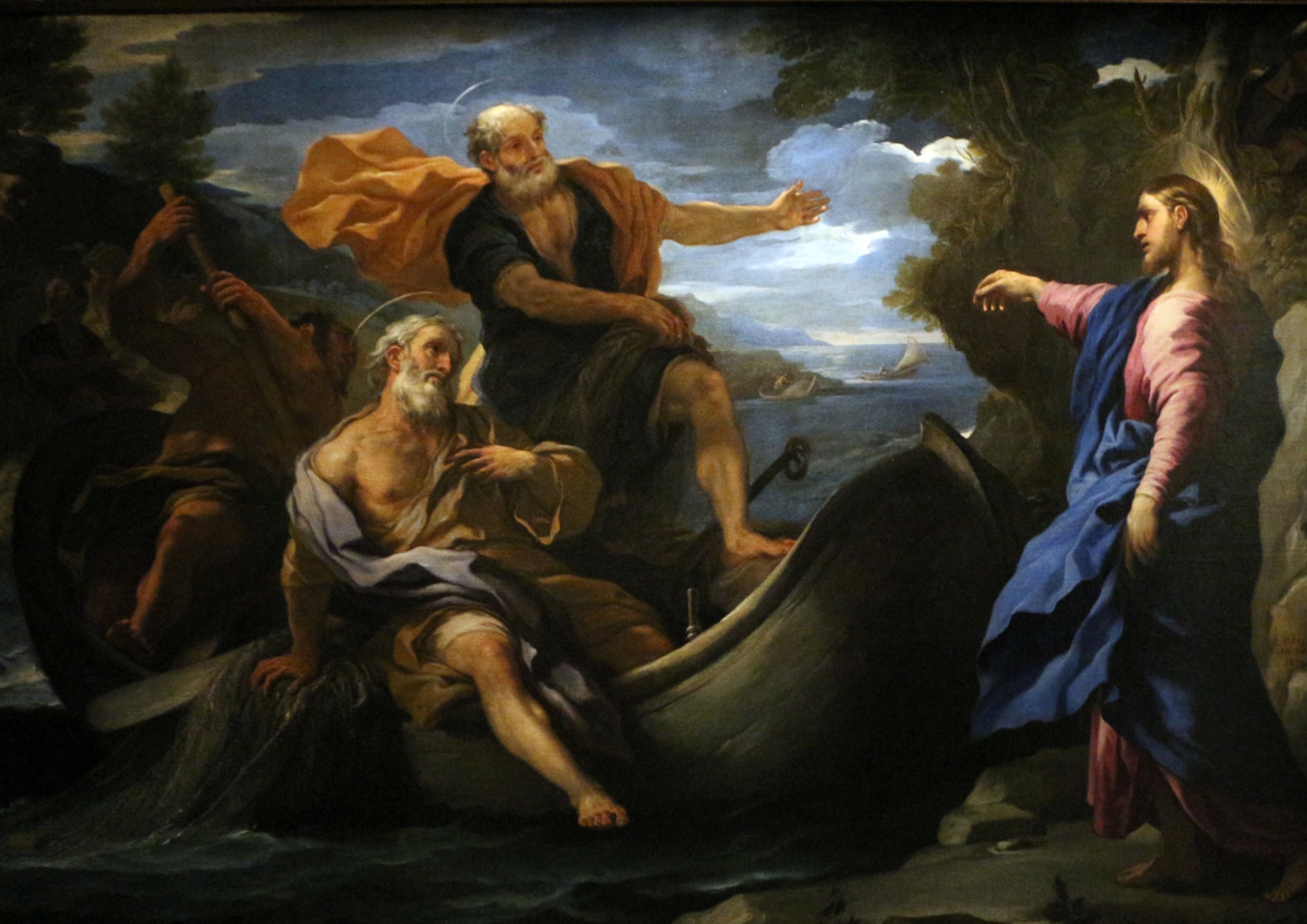Christ’s calling of the disciples in the Gospel of Mark is a striking scene. Two brothers, Simon and Andrew, are working as fishermen on the Sea of Galilee. As they are at work, “casting their nets into the sea,” Christ passes by declaring the Kingdom and preaching repentance. Immediately, the brothers drop their nets to go follow Christ. Christ says they will now “fish” for men, bringing them to the Gospel.
The immediacy of the brothers’ conversion may be the element of this story that strikes us first. Conversion is a life-long event, yet here we encounter two brothers willing to follow Christ at a moment’s notice; to drop their nets and go!
| January 21 – Third Sunday in Ordinary Time |
|---|
|
Jon 3:1-5, 10 Ps 25:4-5, 6-7, 8-9 1 Cor 7:29-31 Mk 1:14-20 |
But, we must also remember that Simon and Andrew had a life of faith before their encounter with Christ, “fishing” the shores of the Galilean Sea for disciples. The contours of their faith are revealed in the other readings for this Sunday. Simon and Andrew would have been familiar with the story of Jonah, who was saved from the mouth of the Leviathan and who preached God’s mercy in Nineveh. The words of the psalmist, too, were familiar to Simon and Andrew and often on their lips: “Teach me your ways, O Lord. Your ways, O LORD, make known to me; teach me your paths, Guide me in your truth and teach me, for you are God my savior” (Ps 24:4-5).
Steeped in these realities of salvation history, Simon and Andrew were ready to be “caught” — to be taught by Christ. Their hearts were open to God and ready for an encounter with the One who is “The way, the truth and [our] life” (cf. Jn 14:6).
Writing on hearts
Reflecting many years later on Christ’s way of teaching, St. Thomas Aquinas (1225-74) reminds us that Christ did not write the Gospel down. No, says Aquinas, Christ taught in a far more excellent way: by writing on hearts. “Christ’s doctrine, which is the law of the spirit of life, had to be written, not with ink, but with the Spirit of the living God; not in tables of stone, but in the fleshly tables of the heart” (Summa Theologiae, 3.42.4).
Thus, Christ wrote the Gospel on the hearts of Simon and Andrew. Or, put differently, Simon and Andrew enfleshed the Gospel as they encountered it in Christ. Simon and Andrew learned the Gospel by living with Christ and learning from Christ’s merciful ways. They witnessed his authoritative fulfillment of the Scriptures. They journeyed with him through the city of Jerusalem, preaching the good news (cf. Jonah), and they beheld the opening of his side and of his Sacred Heart upon the cross.
Through all of this, Simon and Andrew were guided in the Truth. They learned God’s ways. Indeed, so fully did the Gospel beat in their own hearts that Simon (renamed Peter) and Andrew were both martyred for their faith in Christ. Crucified like their teacher, the content of their hearts was unveiled.
And so we return to the striking story of the calling of Simon and Andrew in Mark 1:14-20. Perhaps this story is so striking because, through it, Christ — and Simon and Andrew — are “fishing” for us, too! Perhaps, as we read Mark 1:14-20, our hearts are struck by the need to repent, to be set bare and made ready for the Gospel. Perhaps, steeped now in the realities of salvation history by the Gospels, we are ready to be taught God’s ways like Simon and Andrew. “Teach me your ways, O Lord.”
Thus, Andrew and Simon, with hearts engraved by Christ, show us the way beyond the Gospel text to the person of Christ — to his sacred heart. There, our encounter with the “Spirit of the living God” will inscribe the Gospel upon our hearts.





